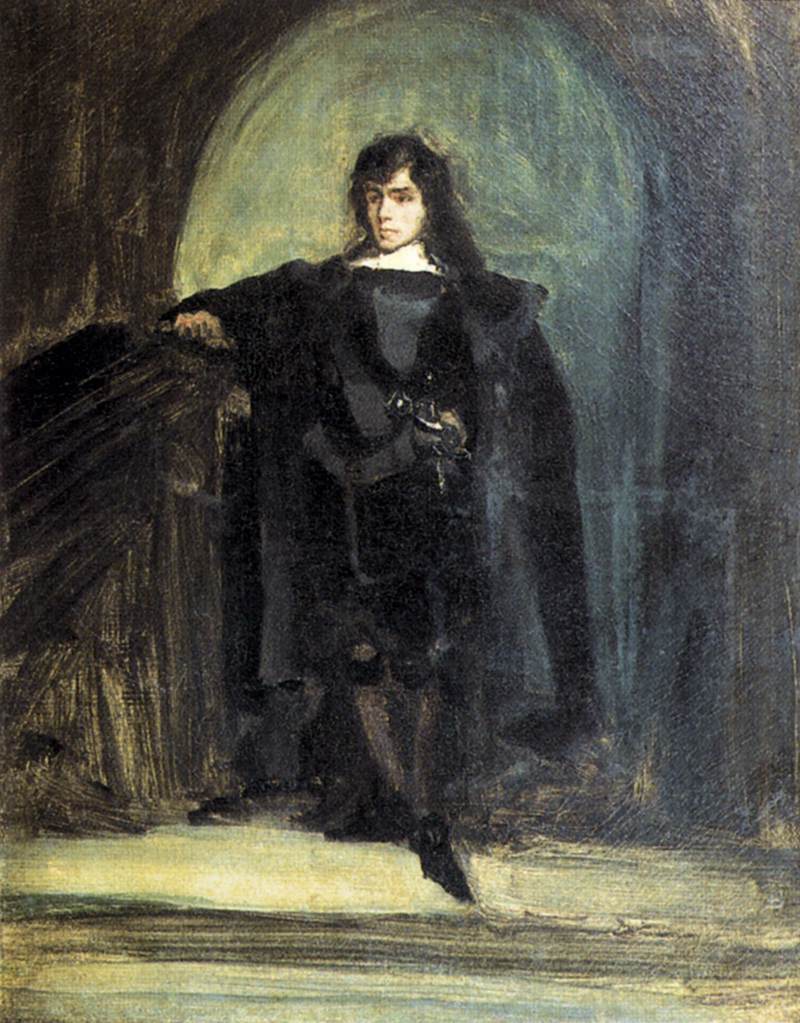Description
Eugène Delacroix's painting Self-Portrait as Ravenswood is a fascinating work that shows the artist in a moment of introspection. The work stands out for its artistic style, which combines elements of romanticism and realism, creating an image that is both emotional and realistic.
The composition of the painting is impressive, with Delacroix seated in a chair in a dark and gloomy room, surrounded by objects that suggest his personality and interests. The artist portrays himself wearing a hat and cape, which give him a mysterious and romantic air.
Color is also an interesting aspect of the work, with dark and somber tones creating a melancholic and reflective atmosphere. The details in the clothing and in the objects surrounding the artist are rendered with great precision, demonstrating the painter's technical skill.
The history of the painting is also fascinating, as it was created at a time when Delacroix was experiencing a creative crisis. The work is considered an expression of the artist's solitude and introspection, and has become one of his most emblematic works.
Finally, there are little-known aspects of the painting that make it even more interesting. For example, Delacroix is known to have used a mirror to paint his self-portrait, which enabled him to capture his own image with great precision. Furthermore, the painting was acquired by the Musée d'Orsay in Paris in 1986, and has been one of the most popular works in the collection ever since.
In summary, the painting Self-Portrait as Ravenswood by Eugène Delacroix is a fascinating work of art that combines elements of Romanticism and Realism to create an emotional and realistic image. Its composition, color and the story behind its creation make it an essential work for any art lover.

